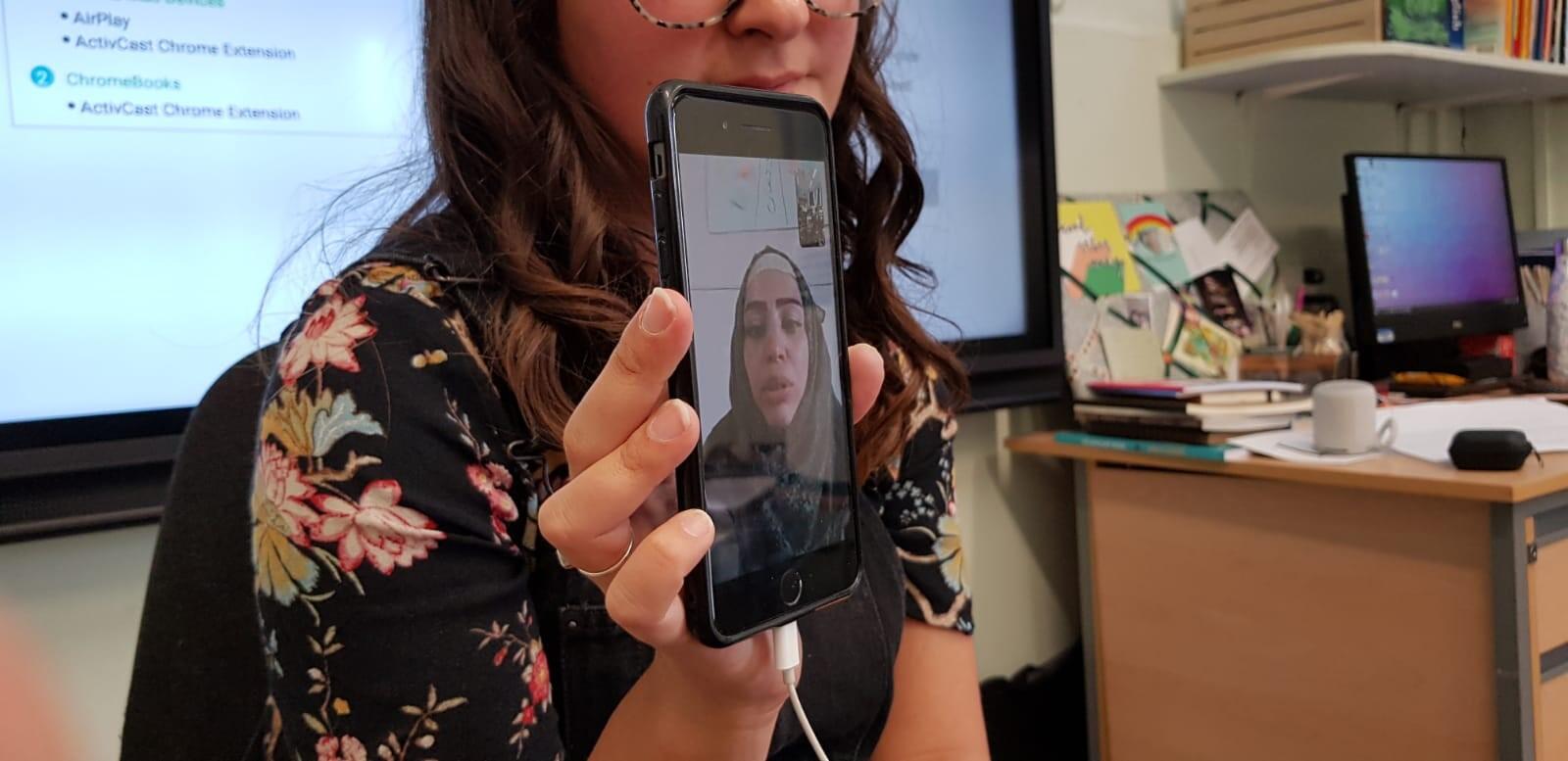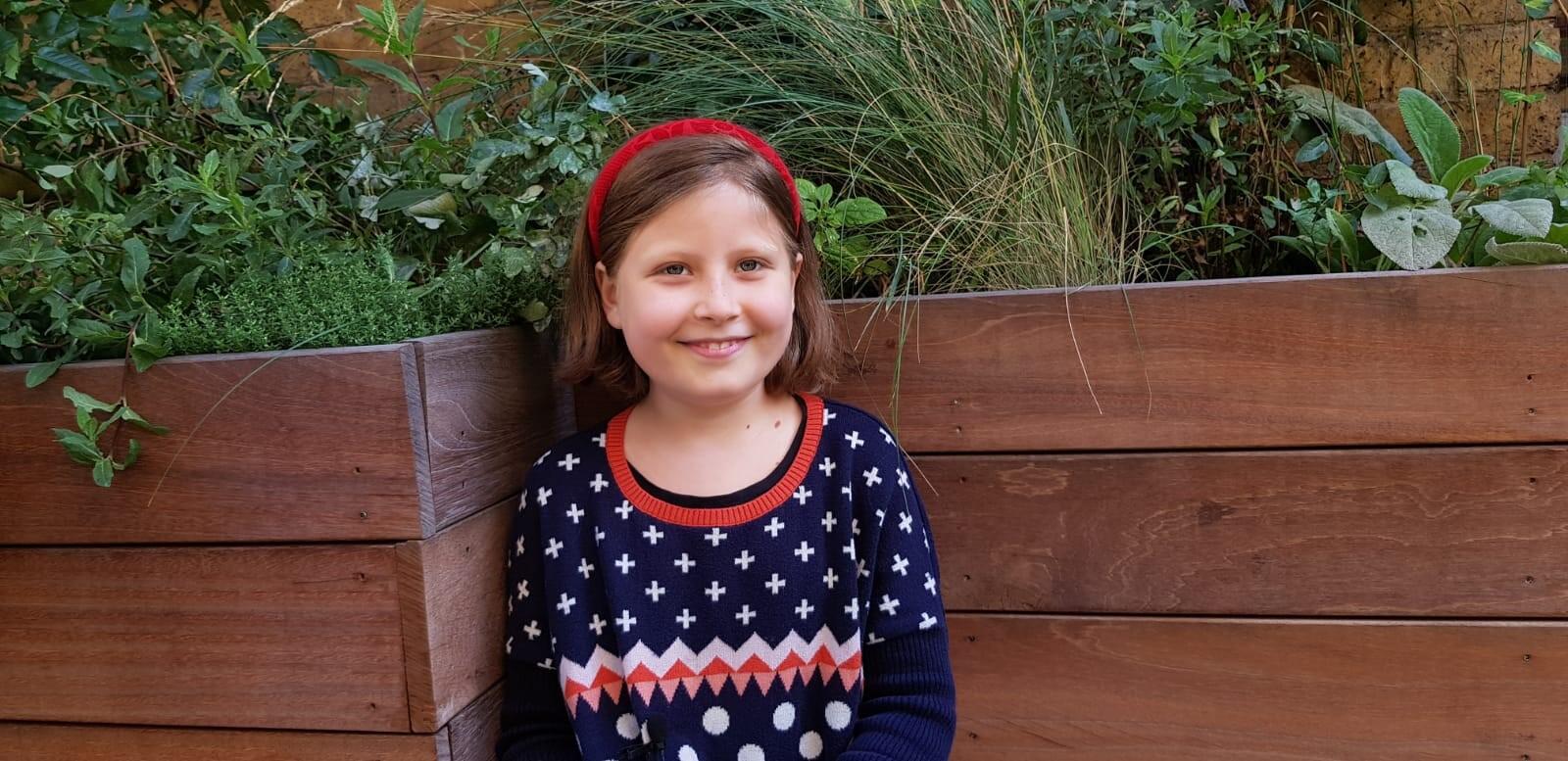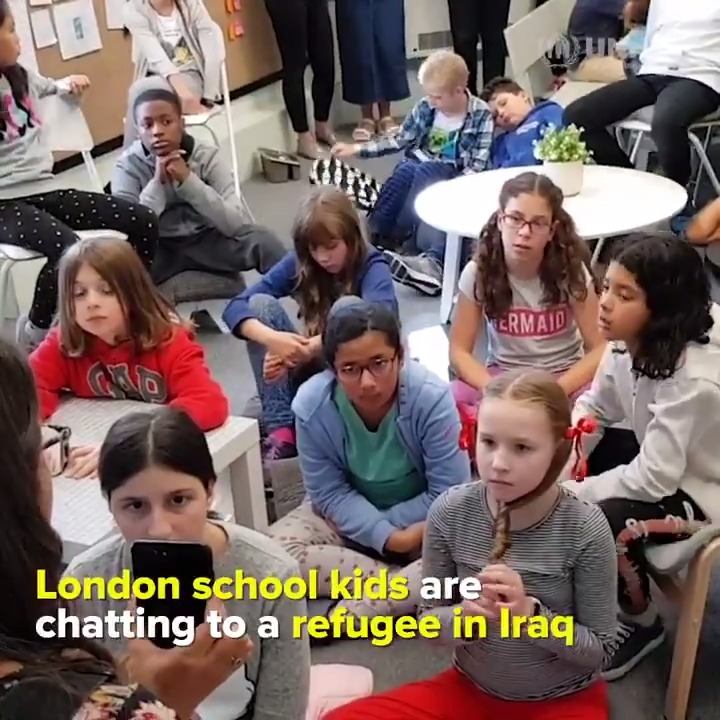'Hello Soho, this is Erbil calling': Bringing refugee stories into the classroom
'Hello Soho, this is Erbil calling': Bringing refugee stories into the classroom

Robyn Churchman, Year 6 teacher and English lead at Soho Parish Primary School, was just scrolling through Instagram when she came across NaTakallam.
In a colourful classroom in central London, primary school pupils are asking Hadiya, a Syrian refugee, about life in northern Iraq.
She tells them that one thing she didn’t expect when she fled to the Iraqi city of Erbil was the change in the weather: “We have nine months of summer and then three of winter. I miss spring and autumn.”

The video chat is facilitated by NaTakallam, a social enterprise that connects refugee teachers with students around the world for language learning. Their new classroom initiative helps bring refugee awareness to a younger generation.
Robyn Churchman, head of year 6 at Soho Parish Primary School, was scrolling through Instagram earlier this year when she spotted an advert for NaTakallam.
“I thought, what better way to learn about refugees than speak to one,” she said.
The pupils huddle around the teacher’s phone and hands shoot up as the kids clamour to ask Hadiya questions. They ask about her journey across the Iraqi border, her life in Syria before the war and even her hobbies. When she says she loves doing Zumba with her students, the room erupts in excitable gasps.
Hadiya Ahmed, a Syrian Kurd from Qamishli, fled to Iraq in 2013 with her husband and two children. She tells the class it was not only conflict that forced her to flee, but also lack of access to healthcare. “I got ill and needed to go to Damascus for treatment, but travelling to Damascus was dangerous,” she says.
After studying English literature at university, she worked as a teacher and social worker. She now teaches English to fellow refugees in Erbil.

Hadiya Ahmed answers pupils' questions about her life before and after the war. In 2013, she fled from Syria to Iraq with her husband and two small children, and now works as a NaTakallam conversation partner as well as teaching English to fellow refugees.
When one student asks about how Iraqis get along with their new Syrian refugee neighbours, Hadiya responds: “We have a different accent and some cultural differences but we all get on!”
The video chat is part of a class programme on refugees and migration and it makes the learning experience more vivid.
“It’s always fun to speak to someone who hasn’t had the same experiences as you,” says Aodhan, age 10.

Dora, aged 10, is astonished to hear about what some refugees have to go through to find safety and security.
The programme, which is supported by the Qatar Foundation International, also changes views about how refugees live, said Churchman. The pupils expected refugees to live in a camp, but their first conversation partner Pavel lived in a city apartment.
Dora, 10, sums up how the video chats have opened her eyes. “It’s kind of unbelievable that things actually happen like this,” she said


